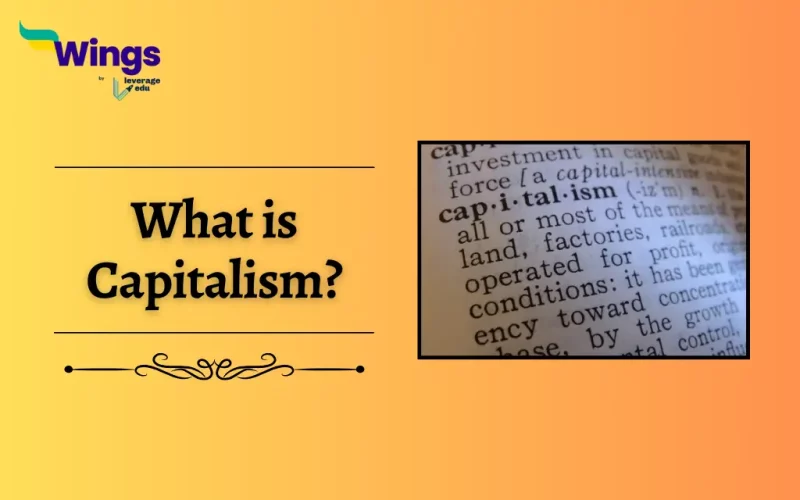Hey, friend! Mr. Owl 🦉 is here. I see that you want to know about ‘Capitalism’. Hootfully, I’ll be of help to you! Since we owls are very wise. If you scroll further down this blog, you will see all the information you will need!
Capitalism in Simple Terms: At its core, Capitalism is like a giant marketplace where people and businesses buy and sell goods and services. Imagine a big auction where everyone can bring their stuff to sell, and anyone can buy whatever they want. It is a system where private people or companies own the resources and make decisions about how to use them.
Table of Contents
What Does Capitalism Mean?
Capitalism is an economic system that emphasises individual freedom and competition.
- It is based on the idea that when people are free to pursue their interests and compete with others.
- Furthermore, it leads to innovation, efficiency, and overall economic growth.
- In this system, prices are determined by supply and demand, and hence people are motivated by the opportunity to make a profit.
Capitalism Economy
The beauty of Capitalism is that it encourages businesses to improve their offerings to attract more customers. Therefore, this competition helps create a cycle of continuous improvement and better choices for consumers.
Conflict Theory in Capitalism
Now, imagine that some kids on the playground have more toys than others. This is where conflict theory comes in. It suggests that in a Capitalist society, there can be an unequal distribution of resources and wealth. Some people might start with more advantages, while others face challenges. This inequality can lead to tensions and social issues, which is a key point from the perspective of capitalism.
Also Read: What is Socialism: Definition, History, and Significance
What is an Example of Capitalism?
Let us say you’re a talented artist. In a capitalist world, you can create beautiful paintings and sell them to interested buyers. The more people like your art, the more money you can make. Conversely, if you spot a demand for a new gadget that makes life easier, you can start a business to produce and sell it. This entrepreneurial spirit drives innovation and creates opportunities for both creators and consumers.
Capitalism is often compared to socialism. While capitalism promotes personal freedom and competition, socialism leans towards collective ownership and focuses on shared welfare. In capitalist societies, businesses and resources are privately owned, whereas in socialist systems, they are often owned or controlled by the government for the benefit of all citizens.
What do Capitalists Believe?
Capitalists believe that individual incentives drive progress. They think that when people have the freedom to pursue their interests and ideas, it leads to economic growth and societal advancement. Moreover, they also believe that competition keeps everyone on their toes, hence pushing them to provide better products and services.
Results
#1. What is capitalism in simple terms?
#2. What is conflict theory in capitalism?
“Kiddos, I’ve answered all your queries with the utmost precision that I was capable of. Now, I’ll be taking my leave, but if you think I might have missed something, do drop a comment. I always respond!
Also Read: What is Communism?
In conclusion, capitalism is like a dynamic dance of supply, demand, competition, and innovation. While it has its strengths in driving economic growth, it also raises questions about fairness and inequality. Understanding capitalism helps us navigate the economic landscape and appreciate the diverse perspectives that shape our world.
Related Blogs
Lastly, we hope you liked our blog and gained an understanding of What is Capitalism. Moreover, you may even read more blogs and empower yourself with knowledge regarding Civics and Polity!
 One app for all your study abroad needs
One app for all your study abroad needs
















